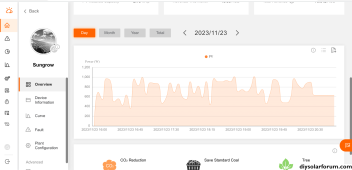Vigo
Solar Addict
Interesting!!
I googled that power supply term and didn't come up with anything that looks like what i have. I forget the brand/model but based on the weight and the feel of the centrally located voltage adjustment knob on the front panel, it seems like it has a big transformer in it and is possibly just a rectified variac type thing on the output of a step-up transformer. I do not believe it has any digital components other than for the volts/amps readout. I will try and remember to snap a pic of it. I didn't know what it was when i picked it up for free from a relative's junk pile and got lucky!
I googled that power supply term and didn't come up with anything that looks like what i have. I forget the brand/model but based on the weight and the feel of the centrally located voltage adjustment knob on the front panel, it seems like it has a big transformer in it and is possibly just a rectified variac type thing on the output of a step-up transformer. I do not believe it has any digital components other than for the volts/amps readout. I will try and remember to snap a pic of it. I didn't know what it was when i picked it up for free from a relative's junk pile and got lucky!



